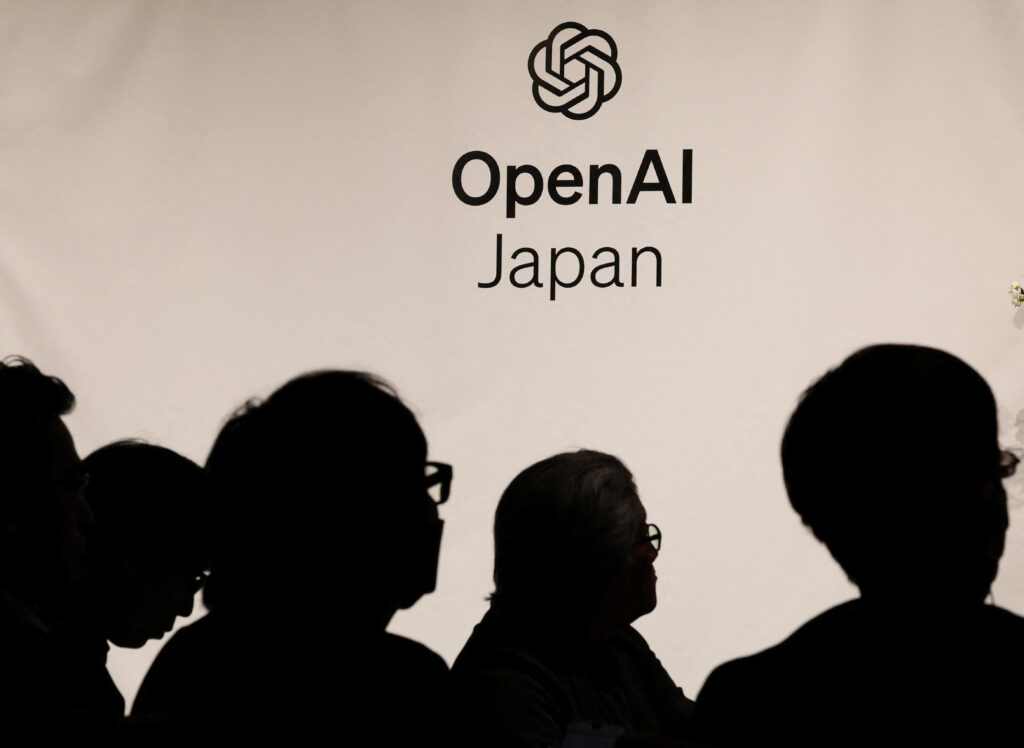Artificial intelligence (AI) research company OpenAI is set to open its first Asian office in Tokyo, Japan this April.
His expansion follows the company’s establishment of offices in London and Dublin in 2023, solidifying its presence in Europe, according to a Bloomberg report on April 1.

OpenAI’s move to Tokyo has the potential to be a significant tech move for a few reasons:
Strategic Access to the Asian Market:
- Asia is a major hub for technological innovation, with countries like Japan and China heavily invested in AI research. Opening an office in Tokyo allows it to tap into this vast talent pool and collaborate with Asian researchers and businesses.
Focus on a Specific Market:
- Japan has a unique cultural and technological landscape. By establishing a physical presence, OpenAI can tailor its AI models and solutions to the specific needs of the Japanese market. This could lead to more effective and culturally appropriate applications of AI technology.
Collaboration with Japanese Tech Leaders:
- Japan boasts major tech companies like SoftBank and NTT actively exploring large language models. OpenAI’s presence could foster partnerships and collaborations, accelerating advancements in the field.
Strengthening AI Governance:
- AI development raises ethical concerns. By working with the Japanese government, OpenAI can contribute to responsible AI development and establish best practices for the region.
Competition and Innovation:
- OpenAI’s presence in Asia could spur further competition and innovation in the global AI landscape. This could benefit everyone by accelerating advancements in the field.
However, it’s important to note that the “best tech move of the decade” is a bold claim. Here are some factors to consider:
- Success Depends on Execution: OpenAI’s ability to integrate into the Japanese market, build strong partnerships, and develop relevant solutions will determine the true impact of this move.
- Long-Term Commitment Needed: Significant results likely won’t be immediate. OpenAI needs a sustained presence and long-term commitment to make a lasting difference.
- Uncertain Regulatory Landscape: Navigating the regulatory environment for AI in Japan could pose challenges.
Table of Contents
Motivations behind the move
Industry analysts, divided in their opinions, have offered diverse viewpoints on OpenAI’s decision to establish a Tokyo office.
Some see it as a strategic initiative to encourage international collaboration in AI development, while others view it as a timely expansion into the growing Asian AI market.
The decision follows the release of ChatGPT in late 2022, sparking speculation about the organization’s motives and strategic objectives in the region.
AI powering Japanese businesses
Reports indicate that OpenAI is talking about getting funds, and it could be worth more than $100 billion, showing that AI is becoming more important in many industries around the world.
Japan, renowned for its technological progress, offers a fertile ground for AI innovation and adoption.
Major Japanese corporations such as SoftBank and NTT are actively pursuing AI solutions tailored for Japanese speakers, signaling a mounting interest in utilizing AI to drive business growth and improve customer experiences.
OpenAI meets Japan
OpenAI’s CEO met with Japan’s Prime Minister in April 2023, establishing the foundation for the company’s entry into the country.
During the discussions, the focus was on expanding OpenAI’s presence in the Japanese market, particularly in enhancing Japanese language capabilities.
Additionally, OpenAI made plans to collaborate with the Japanese government to actively address potential regulatory challenges and risks associated with the deployment of AI.

OpenAI’s expansion into Japan with a Tokyo office marks a fascinating intersection of Western AI and Eastern ingenuity. Here’s why this meeting could be a game-changer:
OpenAI’s Potential Gains:
- Market Access: Japan boasts a thriving tech sector and a population receptive to innovation. OpenAI can tap into this vast market and collaborate with local businesses.
- Culturally Tailored AI: A physical presence allows OpenAI to understand Japan’s specific needs and develop AI solutions that resonate with the market, fostering adoption.
- Collaboration Powerhouse: Japan has AI giants like SoftBank. Partnerships could accelerate advancements through combined expertise and resources.
- Global AI Governance: OpenAI can work with the Japanese government to establish responsible AI practices, shaping the future of AI development for the entire region.
Japan’s Potential Gains:
- Next-Gen AI Tools: Japanese businesses can leverage it’s cutting-edge tools like GPT-4 for tasks like content creation, data analysis, and automation.
- Enhanced Innovation: OpenAI’s presence could fuel further AI research and development in Japan, leading to breakthroughs across industries.
- Talent Acquisition: OpenAI’s Tokyo office can attract top AI talent in Japan, bolstering the country’s AI workforce.
Tokyo office poised to accelerate AI growth
ItI’s presence in Japan, through the establishment of a Tokyo office, signifies the organization’s intention to become a major player in the nation’s developing AI ecosystem.
However, the Tokyo office’s success will rely on factors such as OpenAI effectively collaborating with local stakeholders and adapting its technologies to address Japan’s unique challenges and opportunities in the field of AI.

OpenAI’s Tokyo office has the potential to be a major accelerator for AI growth in several ways:
Boost for Japanese Businesses:
- Faster AI Adoption: A local presence makes it’s tools and expertise more accessible to Japanese businesses. This can accelerate the integration of AI into various sectors, from manufacturing to healthcare.
- Culturally-Nuanced Solutions: By understanding the Japanese market firsthand, it can develop AI solutions that are culturally appropriate and address specific needs. For instance, AI assistants optimized for Japanese social etiquette or chatbots trained on Japanese language nuances.
AI Innovation Hub:
- Collaboration Power: The Tokyo office can foster collaboration between OpenAI and Japanese researchers and companies like SoftBank. This combined brainpower can accelerate breakthroughs in areas like natural language processing or robotics.
- Talent Pool Access: Japan boasts a highly skilled workforce. OpenAI’s presence can attract top AI talent in Japan, further enriching the global AI talent pool.
Global AI Leadership:
- Responsible AI Development: it can work with the Japanese government to establish best practices for ethical AI development. This collaboration can set a strong precedent for responsible AI use worldwide.
- Global Competition: With OpenAI in Asia, the global AI landscape becomes more competitive. This can drive faster innovation as companies strive to maintain a competitive edge.
Conclusion
Overall, OpenAI’s move to Tokyo holds significant promise for the future of AI in Asia. Whether it proves to be the “best tech move of the decade” will depend on their ability to capitalize on these opportunities and navigate potential challenges.
Disclaimer ||
The Information provided on this website article does not constitute investment advice ,financial advice,trading advice,or any other sort of advice and you should not treat any of the website’s content as such.
Always do your own research! DYOR NFA
Coin Data Cap does not recommend that any cryptocurrency should be bought, sold or held by you, Do Conduct your own due diligence and consult your financial adviser before making any investment decisions!



